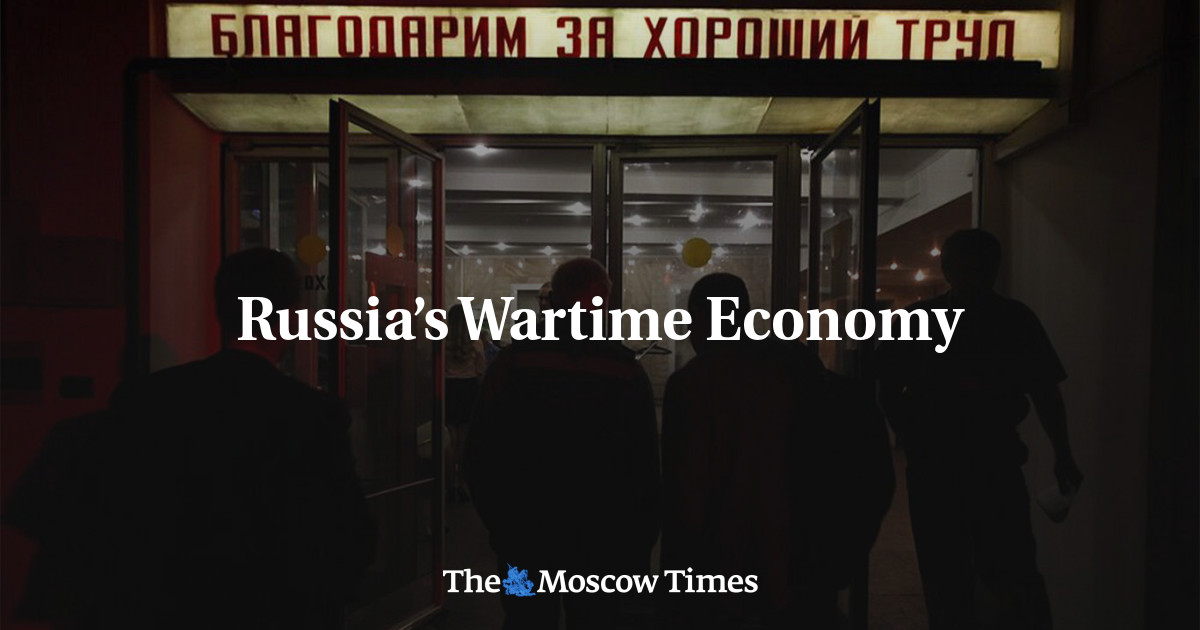Main Topic: China's support for Russia's war effort in Ukraine and evasion of Western sanctions.
Key Points:
1. China has expanded its purchase of Russian oil, gas, and other energy exports since Russia invaded Ukraine.
2. China is providing economic support mechanisms for Russia to mitigate the impact of Western sanctions.
3. Chinese state-owned defense companies have supplied key technology, including navigation equipment and parts for fighter jets, to Russian defense firms.
Main Topic: Western microchips fueling Russia's military arsenal through convoluted trade routes.
Key Points:
1. Russia has been sourcing an increased number of semiconductors and advanced Western technologies through intermediary countries like China.
2. Many of these components are subject to export controls, but convoluted trade routes allow them to still enter Russia.
3. China is the largest exporter of microchips and technology to Russia, taking advantage of Russia's economic isolation.
### Summary
The Russian stock market's recent gains are a facade and the country's economy is in decline, according to Yale researchers. Russia's frozen foreign assets and the depreciation of the ruble have artificially inflated stock market profits. Additionally, the economy is suffering from a loss of confidence, with people and money fleeing to neighboring countries.
### Facts
- 📉 The Russian stock market's recent gains are an illusion, masking the true state of the country's struggling economy.
- 🧊 Russia has frozen inflows and outflows of foreign assets, preventing investors from cashing out and propping up the stock market.
- 💸 The depreciation of the ruble has artificially inflated the value of Russian stocks, as the country's commodities are sold in foreign currencies.
- 💼 Workers, academics, and oligarchs are leaving Russia, taking with them technical and intellectual capital essential to the country's economy.
- 💔 Trust in President Vladimir Putin and confidence in the Russian economy have eroded, leading to a lack of domestic and foreign investment.
- 🌍 Neighboring countries like Armenia, Georgia, and Kyrgyzstan have become destinations for Russian money and talent fleeing the country.
- 📉 Experts warn that Russia's economy could continue to decline and the country may even become a failed state if the costly war in Ukraine persists.
Russian President Vladimir Putin has acknowledged the rising risks of inflation and has urged the government and central bank to keep the situation under control, as soaring prices could pose a threat to living standards and his upcoming re-election bid, while Russia's budget is also strained due to its military operation in Ukraine.
The Russian economy is facing several major issues, including a labor shortage, soaring inflation, a tumbling ruble, the risk of recession, a real estate bubble, and the nationalization of foreign businesses, which could lead to stagnation and a fall in GDP growth in the long term.
The Russian ruble's recent volatility and decline in value reveals the underlying struggle of funding the military without damaging the national currency or causing inflation, while the Kremlin's efforts to stabilize the economy in the short term may not prevent long-term economic decline and stress on the ruble.
The West's reluctance to provide sufficient military aid to Ukraine and growing concerns over corruption may lead to a Russian victory and a defeat for NATO, necessitating a robust damage-limitation strategy and continued economic warfare against Russia.
The West needs to increase pressure on Russia's economy by intensifying sanctions and implementing stricter controls on Russian exports, oil price caps, and financial transactions, while also uncovering hidden stashes of money and putting Russia under a full financial embargo.
Ukraine's military offensive against Russian forces in the south and east has made limited progress, prompting discussions about whether the US and other Western countries should provide more powerful weapons or seek a negotiated settlement.
Sanctions imposed on Russia due to the invasion of Ukraine have resulted in fuel shortages, scarcity of readily available items, and impacts on the aviation industry, paper production, plywood manufacturing, cell-phone reception, tire and lubricant supply, and the production of military vehicles.
The Chief of Defence Intelligence of Ukraine believes that if the war of aggression against Ukraine continues, the Russian economy will only hold out until 2025 and their arms supply will dry up in 2026 or earlier.
Russia's economic resilience, fueled by demand from the global south, is surprising analysts and oligarch Oleg Deripaska, who had previously predicted Russia would run out of money next year due to sanctions.
Russia's economy is expected to grow by 1.5% this year, defying previous projections of contraction and proving more resilient than expected to Western sanctions due to rising oil prices and new export markets, though an eventual slowdown is still predicted.
Chinese firms are providing critical support to Russia's struggling economy and military efforts, supplying goods such as drones, helmets, vests, radios, and construction equipment for use in the war in Ukraine, according to analysis by CNBC. These trade flows, which have been ongoing since the onset of the war, are a lifeline for President Vladimir Putin and a lucrative avenue for Chinese companies. The Chinese government is believed to be aware of these trade flows and have acquiesced to them, despite their claims of "normal economic cooperation" with Russia and no targeting of third parties.
Russia is planning to increase its defense spending by 30%, suggesting that it is preparing for the war in Ukraine to continue for years and hoping that Western support for Ukraine will decrease.
Russia's economy is being increasingly structured around war, with nearly one-third of the country's spending next year devoted to defense, redirecting funds from sectors like health care and education; however, the economic impacts of the war, including inflation and a weakened ruble, are causing concerns for citizens and the government alike.
